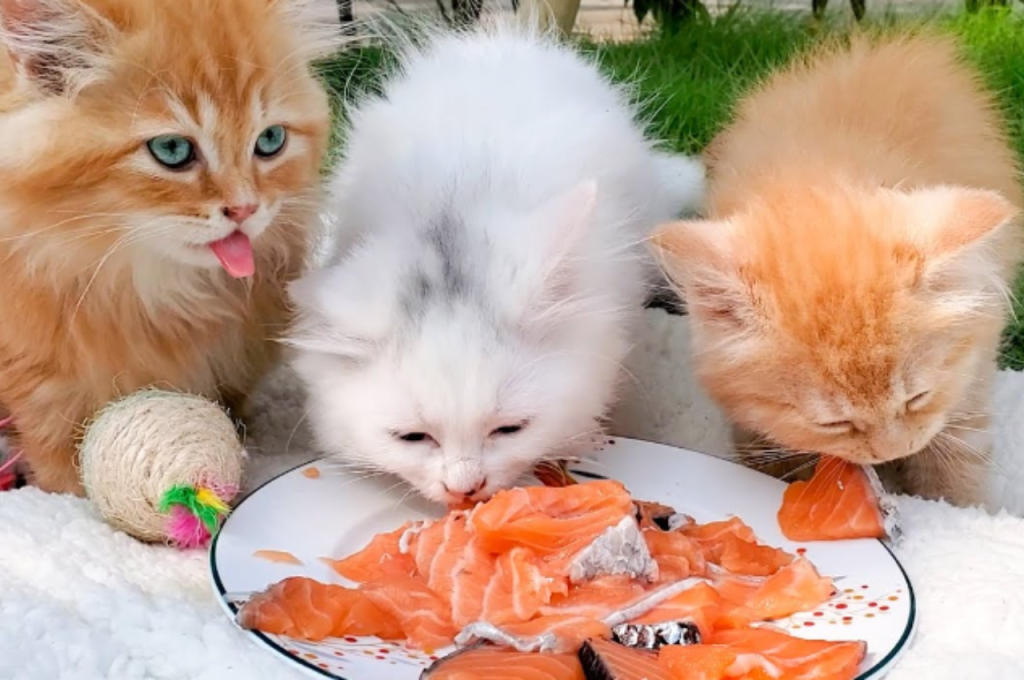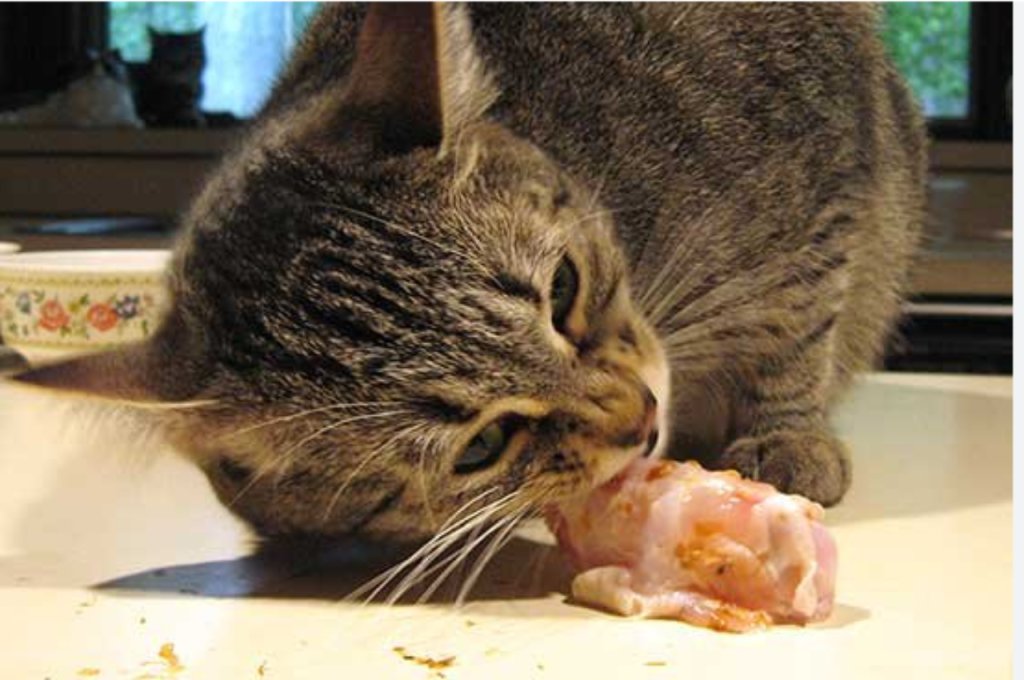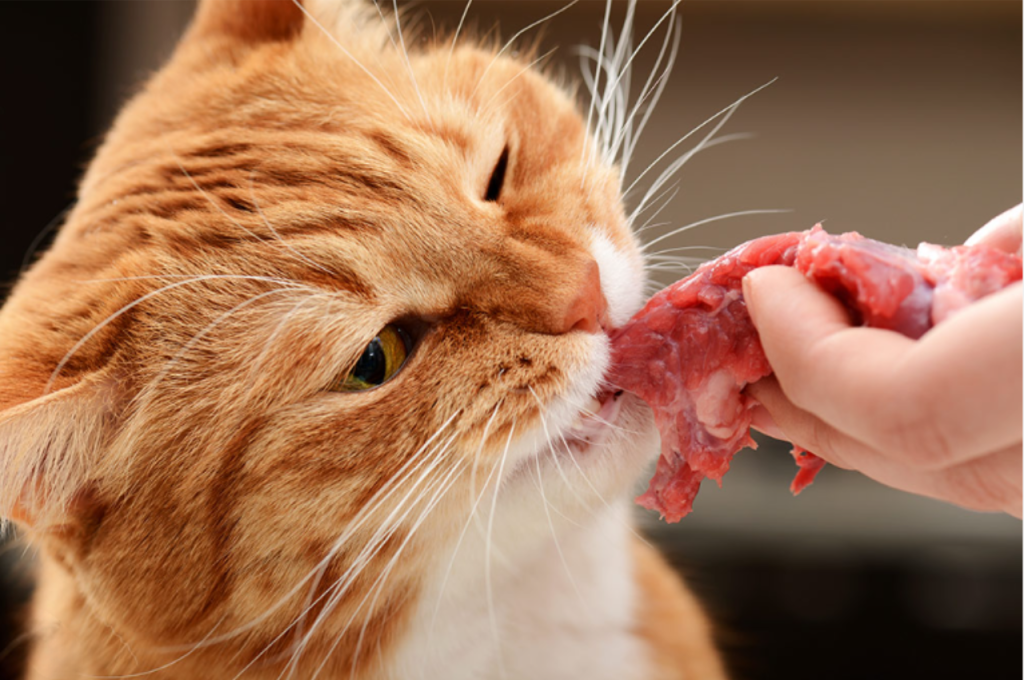The best fish for cats is salmon due to its high omega-3 fatty acids content. When choosing the best fish for your feline friend, consider the nutritional benefits of salmon.
Cats can benefit from the high omega-3 fatty acids found in salmon, which promote heart and brain health. Additionally, the protein in salmon supports muscle growth and maintenance in cats. By incorporating salmon into your cat’s diet, you are providing a healthy and tasty option that they will likely enjoy.
Keep in mind that moderation is key, as too much fish can lead to nutritional imbalances in your cat’s diet. Experiment with different fish options to find what your cat enjoys the most while ensuring their nutritional needs are met.
Types of Fish for Cats
When considering which types of fish are suitable for your cat, it’s essential to choose options that provide optimal nutrition and safety. Here are some types of fish that are generally safe and beneficial for cats:

Salmon
Salmon: A great source of Omega-3 fatty acids for your cat’s healthy skin and coat. Opt for cooked or canned salmon without any added spices, sauces, or seasoning.
Tuna
Tuna: A protein-rich fish that many cats find delicious and nutritious. Choose canned tuna in water as an occasional treat, as it may be high in sodium and mercury.
Whitefish
Whitefish: Mild in flavor, whitefish is easy on your cat’s stomach and provides essential nutrients. Ensure the whitefish is cooked thoroughly and served plain without any added ingredients.
Sardines
Sardines: Packed with Omega-3s, sardines are a flavorful treat that supports your cat’s heart health. Look for canned sardines in water or olive oil and avoid those packed in sauces or high-sodium brine.
Nutritional Benefits of Fish for Cats
Fish is an excellent source of essential nutrients that can benefit your cat’s overall health. Fish is particularly prized for its high content of omega-3 fatty acids, which support cognitive function, joint health, and a healthy coat and skin in cats.
Healthy Omega-3 Fatty Acids
- Omega-3 fatty acids found in fish help promote healthy skin and a shiny coat in cats.
- These fatty acids also support brain function and have anti-inflammatory properties.
High-quality Protein
- Fish is rich in high-quality protein, essential for your cat’s muscle growth and maintenance.
- This protein is easily digestible and provides essential amino acids for overall health.
Considerations When Choosing Fish for Cats
When choosing fish for your cat, there are several important considerations to keep in mind. The type of fish you select can impact your feline friend’s health and well-being. Here are some key factors to consider when choosing fish for cats:
Freshness and Quality
Fresher is better when it comes to choosing fish for cats. High-quality, fresh fish is less likely to contain harmful bacteria or toxins that can be detrimental to your cat’s health. Look for fish that have a firm texture, bright eyes, and a mild ocean aroma.
Bone Content
Check for bones before serving fish to your cat. Fish bones can present a choking hazard and may cause injury to your pet’s digestive system. If you opt for canned fish, ensure that the bones have been removed to prevent any potential harm.
Mercury Levels
Be mindful of mercury levels in certain fish. Some types of fish, such as tuna, may contain high levels of mercury, which can be harmful to cats if consumed regularly. Opt for fish with lower mercury levels, such as salmon or trout, to minimize potential health risks.
Benefits of Incorporating Fish into A Cat’s Diet
When it comes to a cat’s diet, fish is often considered a popular and nutritious choice. It provides a range of benefits that help support your feline friend’s overall health and well-being. Incorporating fish into your cat’s diet can help improve their skin and coat health, as well as provide essential nutrients for their overall health.

Improved Skin and Coat Health
Fish, such as salmon and tuna, are rich in omega-3 fatty acids that are essential for maintaining healthy skin and a shiny coat in cats. These fatty acids help reduce inflammation and promote skin cell regeneration, resulting in improved skin health. Additionally, omega-3 fatty acids help moisturize the skin, preventing dryness and itchiness. By including fish in your cat’s diet, you can help prevent common skin conditions such as dermatitis and dandruff.
Supports Overall Health
A cat’s diet should be well-balanced, providing all the necessary nutrients for optimal health. Fish is not only a great source of protein but also contains vital vitamins and minerals. It is rich in Vitamin D, which supports bone health and strengthens the immune system. The high-quality protein in fish helps build and maintain lean muscle mass, promoting overall strength and vitality in cats. Additionally, fish is a good source of taurine, an essential amino acid that cats cannot produce on their own. Taurine is crucial for heart health, maintaining healthy vision, and supporting normal growth and development.
Potential Risks of Feeding Fish to Cats
Fish is a popular choice for many cat owners due to its high protein content and palatability. However, there are potential risks associated with feeding fish to cats that owners need to be aware of to ensure their feline companions’ health and well-being.
Thiamine Deficiency
Feeding excessive amounts of raw fish to cats can lead to thiamine deficiency, a condition caused by the destruction of thiamine (vitamin B1) in the fish. Symptoms of thiamine deficiency can include loss of appetite, seizures, and neurological issues.
Allergies
Just like humans, cats can develop allergies to certain types of fish. Common symptoms of fish allergies in cats include skin rashes, itching, and digestive issues. It is essential to monitor your cat for any signs of allergic reactions when introducing fish into their diet.
How to Prepare Fish for Cats
When it comes to feeding your feline friend, fish can be a nutritious and tasty option. However, it’s important to prepare fish in a way that is safe and healthy for your cat. Follow these tips on how to prepare fish for cats to ensure that your furry companion enjoys a delicious and wholesome meal.
Cooking Methods
When preparing fish for your cat, consider using gentle cooking methods such as steaming, baking, or boiling. These methods help to retain the fish’s natural flavors and nutrients, making it a more wholesome option for your cat.
Avoiding Seasonings and Additives
It’s crucial to avoid adding seasonings, spices, and additives when preparing fish for your cat. Cats have sensitive stomachs and can be sensitive to certain ingredients, so it’s best to keep the fish plain and simple. Stick to natural flavors and avoid any ingredients that could be harmful to your cat’s health.
Introducing Fish to A Cat’s Diet
Cats are known to be fond of fish due to their natural hunting instincts. However, it is important to introduce fish to your cat’s diet gradually to prevent any digestive issues that may arise.
Gradual Introduction
Start by feeding your cat small amounts of fish as a treat to gauge their reaction. Slowly incorporate fish into their regular meals by mixing it with their existing food.
Monitoring for Any Adverse Reactions
- Observe your cat for any signs of allergies or digestive upset after consuming fish.
- If you notice any adverse reactions, consult your veterinarian immediately for guidance.
- Keep an eye on your cat’s overall well-being and behavior when introducing fish to their diet.
By gradually introducing fish and monitoring your cat’s health, you can determine the best type of fish for your feline friend’s diet.
Alternatives for Cats That Do Not Like Fish
In some cases, cats may not be fans of fish. For these finicky felines, other protein sources can meet their dietary needs. Check out these alternatives to fish-based diets for your beloved cat:

Poultry Options
- Chicken: A popular choice among cats, chicken is a lean protein source that can be easily digested.
- Turkey: Another option for picky eaters, turkey provides a flavorful alternative to fish.
- Duck: Rich in nutrients, duck meat can offer a unique taste experience for your cat.
Plant-based Protein Sources
For cats that are strictly carnivores, plant-based protein sources can be supplemented into their diets to provide essential nutrients:
- Pumpkin Seeds: High in protein, pumpkin seeds can be a beneficial addition to your cat’s diet.
- Quinoa: A complete protein source for cats, quinoa can provide a well-rounded nutritional boost.
- Peas: Packed with fiber and protein, peas can be a healthy plant-based option for cats.
Conclusion
Choosing the best fish for your cat involves considering its nutritional value and potential benefits. By selecting high-quality, cat-friendly fish, you can provide your feline companion with essential nutrients.
Keep in mind that moderation is key when offering fish to your cat, and consult with your veterinarian for personalized recommendations.
